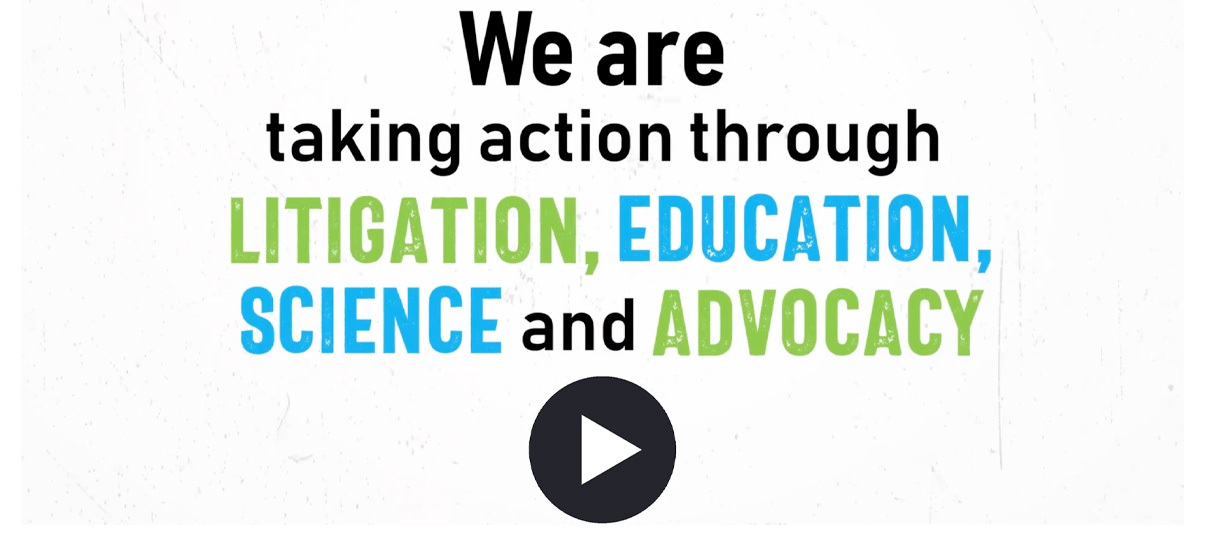The Treason of the Educated Class
Photo by Markus Leo on Unsplash
In a previous article I wrote about the shocking degree of compliance by people, including the majority of the ‘professional’ class, during covid. I referenced a segment from an essay by Emanuel Pastreich titled Treason of the Intellectuals where he says:
The opportunity that I had to study at Yale College as an undergraduate and later at Harvard University for my Ph.D., the chance I had to wander among the gothic buildings, to imbibe confidence and purpose, and to learn to think, learn how things work, from distinguished scholars, was a point of stubborn pride for me when I started my career as a professor, but that legacy had devolved into a nightmare, into a travesty.
I watched up close how the thoughtful and insightful men and women who were my classmates at Yale and Harvard, who were my colleagues as a professor, responded to the horrific institutional decay of the United States over the past two decades. Sadly, although I remember fondly the moments of deep insight and kind exchanges of those good old days, I observed how they, as intellectuals, as lawyers, doctors, engineers, executives, professors and government officials, how they betrayed their fellow citizens and buried the wisdom they had obtained at those temples of learning deep in the excrement of fraud and hypocrisy.
You see, they forgot the entire point of that elite education they had received. It was not supposed to be something you boasted about, or that you possessed like a yacht[P1] or a racehorse, a special key that got you into the club. No! That sort of thinking is the outgrowth of deep moral decay.
That education was a privilege alright, but one that brought with it an absolute obligation to serve society, to stand up bravely for the interests of the nation, and above all for the interests of those who have not had the opportunity to learn how the system works, to study about science and technology, about foreign lands and ancient things.
That is right, you were given special tools that few had access to. They were given to you so that you could use them, use them to help society, especially in times of need, in times of crisis.
In 2023, Thomas Harrington, senior Brownstone scholar, 2023 Brownstone Fellow and Professor Emeritus of Hispanic Studies at Trinity College in Hartford, Connecticut published a collection of essays titled, The Treason Of The Experts; Covid and the Credentialed Class.1 The theme of this collection, which covers the period from April 2020 to November 2022, is neatly encapsulated by Jeffrey Tucker, President of the Brownstone Institute, in the foreword:
It’s to the eternal disgrace of so many elites in the political, economic, cultural and academic world that so many participated in the “great reset” and, further, that so many who did not participate remained silent even as essential social, market, and cultural functioning was systematically dismantled by force with the full participation of the commanding heights of society (viii).
In his introduction Professor Harrington says that for much of the latter part of the 20th century academics considered that enveloping social narratives, the “set of stories [a] collective tells itself to make sense of the world” (The Treason Of The Experts, 2) trickled up from “the spirit of the ordinary people” but that, in more recent years, this explanation “lost sway, with students of identity-making returning in more recent years to an answer that had previously been seen as self-evident: mostly from the lettered elites.
It was and is these cultural entrepreneurs […] who, often backed by very large pecuniary interests, have always had a grossly outsized role in determining what the great mass of a given population comes to see as social “reality”” (ibid.).
This awareness of the source of ‘social narratives’ (the lettered elites) encourages a more circumspect and critical perspective when we hear public announcements, of which we heard, and still hear, many, endlessly repeated over the last almost four years. As evidenced here it has become increasingly easy to discern the ‘message replication’ coming from the propagandists. Harrington points out that their “ever-increasing power and, with it, even more open disdain for the intelligence of the citizenry” (Op-Cit., 3), allied with their brazenness, has exposed their contempt for the masses.
Awareness is growing that those in power, those informing and directing, so to speak, the credentialed class, do not, and have not throughout history, respected the majority of human beings as having rights, even the right to life, as human beings. The globalist cabal behind the covid narrative and the corresponding multi-pronged attack on humanity, comprised of public investment companies such as Blackrock, Vanguard and Berkshire Hathaway, the WHO, UN, World Bank, IMF, UNESCO, the WEF and other NGOs – see here and here – neither respect the vast majority of us human people nor see us as having inalienable rights. The world they envision and their management and consolidation of that world takes precedence over our rights as free, divinely inspired, sovereign people. Essentially, as far as they are concerned, we are disposable. Worse, we must be culled; there are simply too many of us.
In an article titled, The Revenge of the Malthusians and the Science of Limits Matthew Ehret says: “The entire system of eugenics advocated by Galton, Huxley et al were merely a repackaging of the underlying assumptions of the theories of population popularized by the British East Company’s star economist [‘the reverend’] Thomas Malthus (1766-1834).” Prince Philip, who died in 2021, expressed the same Malthusian views on overpopulation in this short film from Americans United Against the New World Order: https://www.bitchute.com/video/UyeTTsMOqFWm/.
Professor Harrington’s focus is on the educated and credentialed class: academics, politicians, doctors, lawyers, scientists and journalists we have traditionally trusted but who have betrayed us and are not serving our interests but have elected to act for the powerful in society. He references the French intellectual Julien Benda who, in 1927, in the wake of WW1, published La Trahison des Clercs, translated as The Treason of the Intellectuals2.
For Benda, the great and unpardonable sin of the intellectuals in both Germany and France was to abandon the imperative to generate disinterested knowledge, and to instead lend their talents and prestige to tasks of promoting home-borne chauvinism on one hand, and the systematic denigration of the enemy’s culture and citizens on the other. (The Treason of the Experts, 107).
What Benda observed and wrote about, as Harrington notes, is the same moral abdication that we are today witnessing. This moral failure by the educated class led to shocking effects during the Nazi era and is described in some detail by Robert J. Lifton in The Nazi Doctors3. In the preface Lifton says:
The great majority of professionals in any society – of lawyers, doctors, teachers, and others – function within its moral parameters, within its designated normality. This can contribute to a society in various ways and serve a healing function. At the same time such compliance among professionals tends to deepen existing normality and help others to adapt to it.
When normality becomes malignant professionals can be all too ready to serve that version of it as well. Indeed professionals are required for maintaining that malignant normality and help others to adapt to it. (ix) (Bold emphasis added)
Such moral failure must be brought to the forefront and analysed if we are to progress as a truly human species.
In the interview linked at the end of this piece Harrington says that, in his book, he, “wanted to separate the ideas of having a credential and actually being wise or intelligent. […] That gap between the credential and the wisdom it’s supposed to represent is getting wider all the time. It has a lot to do with the way the university industry has deployed itself in these last 30 and 40 years. But it has another factor that I think has to do with the way our society has become divided socioeconomically. (1’40”).
In one of the essays in his book, titled, What Everybody “Knows”, written in the early weeks of the pseudo-pandemic on 27 June, 2020, Professor Harrington directly contrasts the attitudes and opinions of his professional, academic colleagues with non-college-educated people. He found himself in a situation where he was having conversations with men and women who were manual workers while, at the same time, participating in zoom meetings with academics. He was, he says, “quite struck by the stark contrast in both tone and content between the two sets of conversations.” Of the academics, he says, “There was an almost religious solemnity in their voices when they talked of the “unprecedented” and “dangerous” nature of the Covid problem.” But,
[i]n the conversations with the men and women from the rural area, many of whom work in the building trades – and who during the lockdowns worked with others non-stop and usually without a mask – there were frequent expressions of skepticism, both about the true seriousness of the epidemiological problem, and about the necessity and effectiveness of the extreme measures being used to combat it (The Treason of the Intellectuals, 29, 30).
He continues this contrast saying:
Of my two groups of interlocutors, the only ones who spoke in minimally rigorous terms about the statistical reality of the problem – and therefore the real risk of mortality faced by ordinary people in the midst of the crisis – were members of the rural and less educated cohort.
With my academic colleagues almost everything said corresponded directly to the central tropes of the narrative pushed by Big Media, and the evidence they adduced to justify their sense of alarm consisted mostly of disturbing anecdotes, scarcely representative of the wider and statistically proven social realities (Op. Cit., 30).
He questions and critiques a central presumption of those in the educated class,
that we are automatically much better equipped than the less educated to sort through the flows of information that surround us.
But what few from this group take into account is the possible effect that the desire for “cultural distinction” as Bourdieu phrased it, might have on our perceptions; that is, how our desire to see our superior cultural status in relation to the masses vividly confirmed, might cause us to suspend our highly developed sense of intellectual discernment. Or that whenever there are significant quantities of cultural prestige or money at stake in a debate, groupthink is just as real a possibility among the self-denominated wise as it is among the less educated (Op. Cit., 31).
For the credentialed class the desire to have their “superior cultural status in relation to the masses vividly confirmed” can put their integrity and personal morality at risk.
Towards the end of this essay Professor Harrington says:
[W]hat I am suggesting is that having more educational credentials is no guarantee against the danger of believing in stories that seriously distort our understanding of empirical facts.
If we are going to suggest that in less-schooled people there might be greater tendency to grant legitimacy to supernatural and spiritual powers, it seems fair to also suggest that in the credentialed classes today there is a tendency to uncritically accept the high-sounding abstractions of fellow credentialees, not so much on the rigor of their arguments, but on the basis of their perceived possession of cultural capital (Op. Cit., 34).
You can watch this fascinating interview here:
https://www.bitchute.com/video/4HKa3BoHd9M/
1Harrington, Professor Thomas. The Treason Of The Experts; Covid and the Credentialed Class, Austin: Brownstone Institute, 2023.
2Benda, Julien. The Treason of the Intellectuals. Abingdon, New York: Routledge, 2017.
3Lifton, Robert, J. The Nazi Doctors. New York: Basic Books, 2017.

